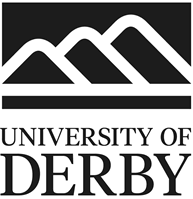Purpose / Objectives
- Create a critical comparative investigation of the engagement of animals within post 2000s visual and performance art in the UK and USA, and the conditions that define their inclusion in respect of context, appropriateness, narrative, exhibition and public engagement;
- To create an understanding and critical analysis of the ethical and unethical dimensions of the inclusion of animals within this defined area of art practice. To construct a contextually supported structural analysis of right and wrong behaviours and why within this context.
- A critical artistic research engagement that incorporates animals practically, ethically and effectively in response to ongoing findings. This should be produced in visual art, performance or a combination of both, and should be publicly disseminated. The weighting of creative and written components is equal (50% each).
Description of the Project
There has been an increased interest in how animals contribute to critical debates regarding the more than human, a phenomenon termed the animal turn. When the term ‘animal studies’ was coined in the early 1990s it was initially envisaged rather narrowly as a subfield of the social sciences, but by the time of two large and ground-breaking international conferences in 2000 – Representing Animals in Milwaukee and Millennial Animals in Sheffield – it was clear that the arts and humanities were at least as important to this nascent field. Certainly, it is the creative arts that have brought impact and significance through the generation and questioning of formative knowledge, and it is within practice where future potential exists.
Observations of the behaviours and attributes of non-human animals has received increased interest, in a pursuit of understanding experiences beyond the anthropomorphic, and their impact and significance on human life. Inter-species relationships, such as the diametrically opposed constructions of pet and livestock, the lived with and the life to be edible, bring into sharp focus the ethical precariousness of the ‘use’ of non-human animals. This has seen a significant increase in discussions of relations with non-human life, considering efficacious and co-living realities, the meat versus companion debate, and the ethical framework necessary within socio-cultural practice, amongst others. The non-human animal, and the human position with it, features in critical and philosophical texts, behavioural studies and, increasingly, studies within art, both in practice and text.
That art has adopted the non-human animal is, perhaps, no surprise as through the lens of Deleuze and Guattari, Derrida and Foster we see how the artist, as a creator of life and its myriad relations and experiences, might be considered to be behaving as an outsider to humanity in order to be its social commentator. As an outsider, these theorists argue, the artist is therefore self-positioning as animal. As a consequence of this suggested alignment, artists have a significant contribution to make to the development of the animal turn and animal studies by advancing the debate reflexively and responsively through creative endeavour. In effect, they are well positioned and best placed to make an impactful and insightful contribution. That artworks are disseminated publicly, through exhibition and performance, for example, sees their criticality given increased impact and exposure to advance the discussion beyond the confines of the art world and academia. Here, the discussion continues through the audiences it encounters, who may question their own behaviours regarding the treatment of non-human animal bodies as a consequence.
Yet, how ethical is this practice, how appropriate and viable is it to include non-human animals, who lack the ability to verbalise consent, and what lessons can be learnt from artists working in this context? This PhD will draw from socio-cultural and -political debates to comparatively analyse appropriate inclusion of non-human subjects within art practice produced since the year 2000, a time that has seen a shift and re-orientation with the subject creatively, in the UK and USA. Animal behavioural studies and the sciences are also expected to feature as reference within the study, which will position responsive art practice as an equal component to the production of a critical thesis. This should be produced in visual art, performance or a combination of both, but may include other creative methods as the subject demands. The creative component should be publicly disseminated in an appropriate venue and/or online, and the writing should seek publication.
Interview date
11th November 2021 – interview via Microsoft Teams
How to apply
To apply, please click here.

 Continue with Facebook
Continue with Facebook




